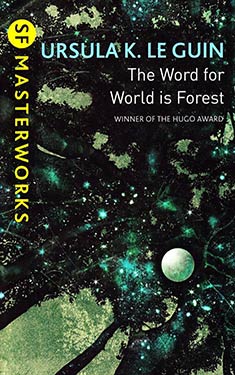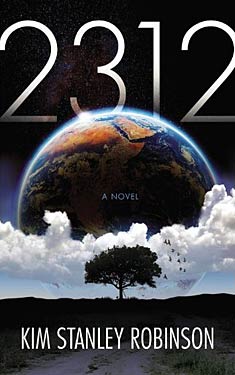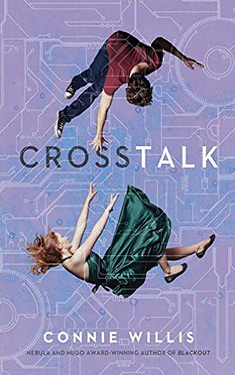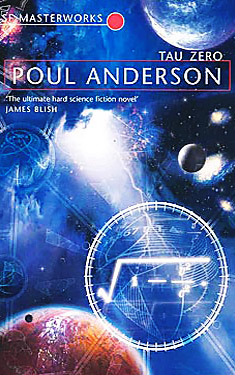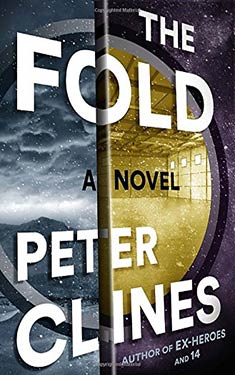Nancy Kress
Completed 5/27/2019,
Reviewed 5/27/2019
5 stars
I loved this
novella. It was quick to capture my attention
with a plot about aliens coming to earth with messages of hope and doom and the
Earth’s response to them. It was paced
well, and had good character development.
It had the right amounts of alien-ness and humanity. It’s my first book by Nancy Kress who has won
several awards, including a Nebula for Novella for this work.
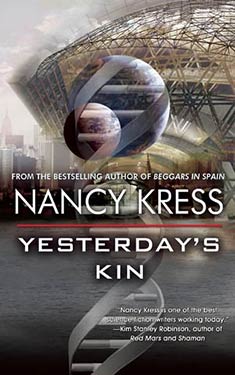 The story
revolves around Marianne Jenner, a microbiologist who just had a paper
published in Nature magazine. This is a huge deal because she’s a scientist
working at a relatively small college.
Suddenly, she is whisked to New York to meet with the aliens who landed
in the harbor some two months prior, because of this paper. She meets them with the Secretary-General of
the UN and representatives from China and Russia. They come in peace, but also have a message
of doom. The Earth is about to pass
through a cloud of dangerous spores, spores that the aliens have come across before,
and want to work with Earth’s greatest scientists to try to discover a vaccine
or a cure for it. Earth’s response is of
course it will help. At the same time,
people’s responses are not that great: the
market swings wildly, death cults form, religions tout the end of the world,
suicides increase, and conspiracy theories and anger abound.
The story
revolves around Marianne Jenner, a microbiologist who just had a paper
published in Nature magazine. This is a huge deal because she’s a scientist
working at a relatively small college.
Suddenly, she is whisked to New York to meet with the aliens who landed
in the harbor some two months prior, because of this paper. She meets them with the Secretary-General of
the UN and representatives from China and Russia. They come in peace, but also have a message
of doom. The Earth is about to pass
through a cloud of dangerous spores, spores that the aliens have come across before,
and want to work with Earth’s greatest scientists to try to discover a vaccine
or a cure for it. Earth’s response is of
course it will help. At the same time,
people’s responses are not that great: the
market swings wildly, death cults form, religions tout the end of the world,
suicides increase, and conspiracy theories and anger abound.
Threaded
throughout this narrative is a second story line, that of Marianne’s three
grown children. There’s the successful
and pleasant ecologist Ryan, the abrasive immigrations officer Elizabeth, and
the drug addicted loser Noah. Interactions
with the three not only play a role in Marianne’s life, but also have
implications with the relations with the aliens.
I thought
the way the stories of the three children weave through the main narrative was
brilliantly done. Marianne and Noah are
the main characters, so of course, they are the best developed characters. Elizabeth is rather one-note, and Ryan is just
sort of nice. But they all work to
create a wonderfully dysfunctional family.
If this were a longer novel, I’d bet that Elizabeth and Ryan would have
been more fleshed out as well.
The aliens
were very interesting. They are very
human-like, but going beyond that gives too much away in this short piece. They are much more advanced than us – they have
interstellar travel after all – but they are not advanced enough in the
biological sciences to conquer this doomsday threat. It has already wiped out two of their colonies
that were in the path of this spore cloud.
There’s nothing that would indicate that they had any nefarious
intentions with us, but of course, we as suspicious humans can’t handle that
and people rebel. I really liked the
aliens, as well as Kress’ depictions of how we would react to them.
The biology
is very interesting as well. There’s
just enough to make it harder science fiction, but Kress explains it well
enough that I didn’t need to be a biologist to follow it.
I kind of
saw the end coming, but I was surprised by the reason why. I thought it was a wonderful twist. I give the book five stars out of five
because it had me breathless for most of it and I couldn’t wait to get to the
end. I was glad I read this on my day
off and could finish it in a few sittings, with breaks for a walk and
food.
